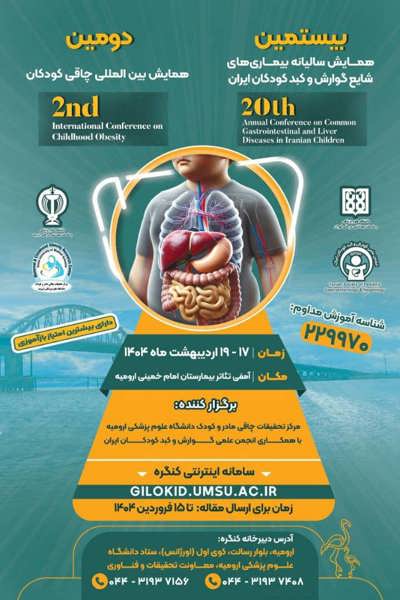0% Complete

صفحه اصلی
/
بیستمین همایش سالیانه بیماری های شایع گوارش و کبد کودکان ایران و دومین همایش بین المللی چاقی کودکان
نویسندگان :
کلمات کلیدی :
چکیده :
لیست مقالات بایگانی شده
Aylin Ebrahimpour - Faezeh Ghalichi - Sadra Khodaei Alamdari
Negar Moosaee Farahani - Sajjad Moradi - Aylin Ebrahimpour
Mohaddeseh Ghahremany - Faezeh Ghalichi - Razieh Vaezi
Elahe Molaei Moghbeli
Elahe Karimipour - Haniye Karimipour
Kiana Ghafourian - Kiyanoush Jafari - Faezeh Ghalichi
Aydin Mahmoud Alilou - Roghayeh Faraji Akhijahani - Pouria Shieeh - Alisan Khodayarlo - Sina Manouchehrnia - Sana Nasirpour - Meysam Najafi - Parinaz Mahmoud Alilou - Reza Rostami - Amir Reza Bana Nasli - Amir Hossein Eskandari - Asal Khaksar Kolvanagh - Pardis Pour Ali

